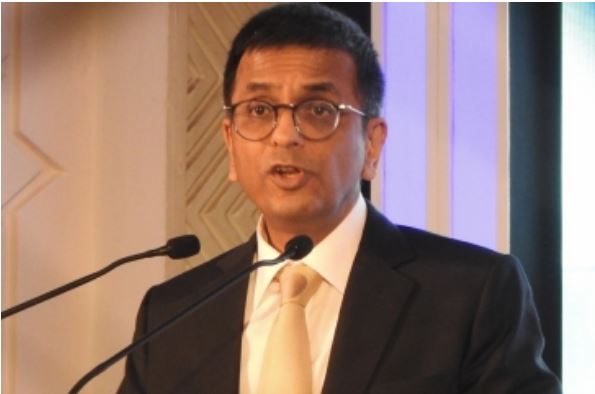Pressure groups trying to use social media to affect outcome of cases, says ex CJI Chandrachud
New Delhi: Former Chief Justice DY Chandrachud said social media is being used by special interest groups to influence the outcome of cases and judges need to be wary of them.
He noted that people nowadays want to form an opinion based on 20 seconds they see on YouTube or any other social media platform, saying it poses a great danger.
“Today there are special interest groups, pressure groups who are trying to use social media to affect the minds of the courts and the outcomes of cases. Every citizen is entitled to understand what is the basis of a decision and to express their opinions on the decisions of the court. But when this goes beyond the decisions of the court and targets individual judges, then it sort of raises fundamental questions about – Is this truly freedom of speech and expression?” he said.
“Everybody, therefore wants to form an opinion in 20 seconds of what they see on YouTube or any social media platform. This poses a grave danger because the process of decision-making in the courts is far more serious. It is really nuanced that nobody has the patience or the tolerance today on social media to understand, and that is a very serious issue that is confronting the Indian judiciary,” he said while speaking at NDTV India’s Samvidhan@75 Conclave.
“Judges have to be very careful about the fact that they are constantly being subject to this barrage of special interest groups trying to alter the decisions of what happens in the courts,” he said while replying to a question on whether trolling on social media impacts judges.
Chandrachud also said that in a democracy the power to decide the validity of laws is entrusted to the constitutional courts.
“Separation of powers postulates that law-making will be carried out by the legislature, execution of law will be carried out by the executive and the judiciary will interpret the law and decide the disputes. There are times when this comes under strain. Policy making is entrusted to the government in a democracy.
“When fundamental rights are involved, courts are duty bound under the Constitution to step in. Policy making is the job of the legislature, but deciding on its validity is the job and responsibility of the courts,” Chandrachud said.
Defending the collegium system, the 50th CJI said there is a lot of misunderstanding about the process and it is very nuanced and multi-layered.
“It’s not as if the judiciary has exclusive role to play in appointment of judges,” he said adding that first thing to be considered is seniority of judges.
When asked if judges should enter politics, the former CJI said there is no bar in Constitution or in law to do so.
“Society continues to look at you as a judge even after retirement, therefore, things which are alright for other citizens to do would not be alright for judges to do even when they demit office.
“Primarily it is for every judge to take a call on whether a decision which he takes after retirement will have a bearing on people who assess the work which he did as a judge,” he said.
Chandrachud retired November 10 after a stint of two years as CJI.
PTI


Comments are closed.